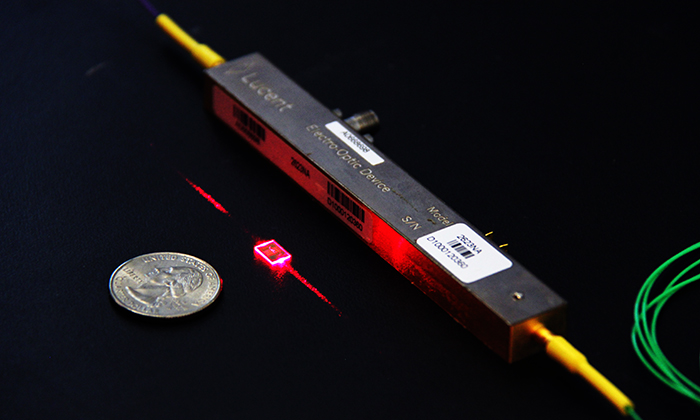Small modulator for big data

Conventional lithium niobite modulators (right) are the backbone of modern telecommunications but are bulky, expensive and power hungry. This integrated, on-chip modulator (center) is 100 times smaller and 20 times more efficient. Image courtesy of the Loncar Lab/ Harvard SEAS
Conventional lithium niobite modulators, the longtime workhorse of the optoelectronic industry, may soon go the way of the vacuum tube and floppy disc. Researchers from the Harvard John A. Paulson School of Engineering and Applied Sciences have developed a new method to fabricate and design integrated, on-chip modulators 100 times smaller and 20 times more efficient than current lithium niobite modulators.
The research is described in a Sept. 24, 2018 paper in Nature.
“This research demonstrates a fundamental technological breakthrough in integrated photonics,” said Marko Loncar, the Tiantsai Lin Professor of Electrical Engineering at SEAS and senior author of the paper. “Our platform could lead to large-scale, very fast and ultra-low-loss photonic circuits, enabling a wide range of applications for future quantum and classical photonic communication and computation.”




